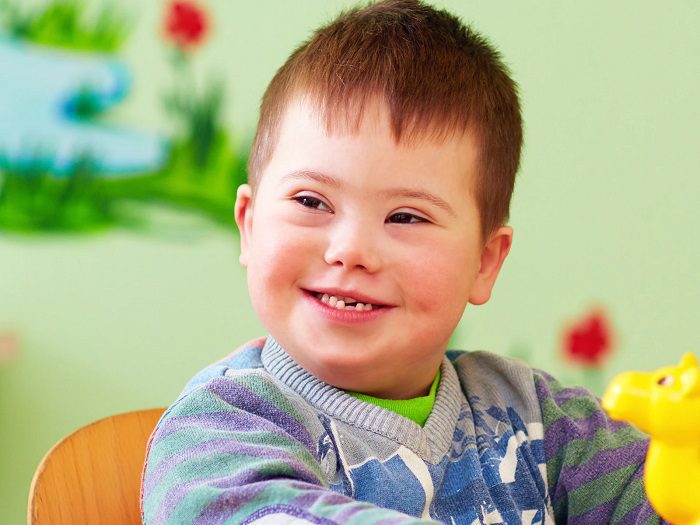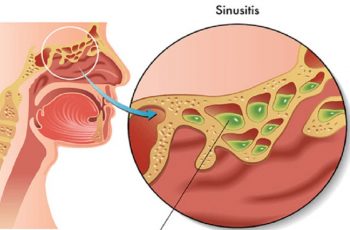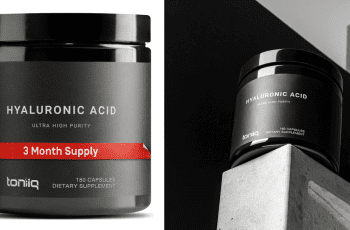Pregnant mothers often face a barrage of questions from friends and family regarding the health and outcome of their unborn babies. One commonly asked question is what causes autism during pregnancy, as no one wants to have children born with this condition. In this blog post, we will discuss everything pregnant moms need to know about what causes autism during pregnancy and provide helpful tips on minimizing some of the associated risk factors.
Whether expecting your first child or already having children, gaining insight into these potentially preventable conditions is always helpful for parents-to-be. Read on for more information about understanding potential risks and protecting your growing baby from the onset of autism.
What Causes Attention Deficit Hyperactivity Disorder (ADHD) or ASD During Pregnancy?
Proven Pregnancy-related Risk Factors for Autism
Use of Antiepileptic Drugs
The use of antiepileptic drugs during pregnancy may increase the risk of a child developing autism. In addition, studies have shown an increased risk for ASD when pregnant women take a combination of two or more antiepileptic drugs during their pregnancy. However, it is essential to note that studies have also found that taking a single antiepileptic medicine during pregnancy does not significantly increase the risk of ASD. This suggests that switching to a single medication may be more beneficial than taking multiple drugs simultaneously.
Chemical Exposure Induces Autistic Children
Another potential source of increased risk for autism is chemical exposure. Research has shown that certain types of chemicals, such as polychlorinated biphenyls (PCBs) and polybrominated diphenyl ethers (PBDEs), can increase the likelihood of developing ASD. These chemicals are commonly used in industrial processes and can be found in soil, water, and air pollution. If you live near an industrial area or your work involves any chemical handling—it is important to talk with your doctor about these potential risks and how to minimize them.
Preterm Births
A preterm birth occurs when a baby is born before 37 weeks gestation. This type of birth carries an increased risk for many health complications, including autism. For example, research has found a 1 in 10 chance that a baby between 32 and 36 weeks will develop autism spectrum disorder (ASD). The risk increases to 1 in 5 for babies born at 28 to 31 weeks gestation and 1 in 3 for babies born prematurely at less than 28 weeks gestation.
Maternal Hormone Imbalances
Hormonal imbalances during pregnancy may also contribute to an increased risk of ASD. For example, pregnant women with higher testosterone levels have been linked with autism traits in their children, reduced facial recognition abilities, and language issues. Additionally, high levels of cortisol—the body’s primary stress hormone—have been associated with a greater risk of developing autism. Therefore, maintaining healthy hormone levels throughout pregnancy is vital to reducing this risk factor.
Genetic and Environmental Factors
Studies have shown that environmental exposures to toxins during pregnancy may also increase your child’s likelihood of being diagnosed with autism or other developmental delays or disorders. These toxins can come from air pollution, pesticides, and even lead paint or asbestos insulation in homes built before 1978. To reduce exposure, it’s important to talk with your doctor about what specific environmental toxins are in your area and how to minimize your contact with them during pregnancy.

Does Maternal Weight Affect a Child’s Autism Risk?
Researchers at the University of California, Davis suggest that women underweight or overweight before pregnancy may be more likely to have children with ASD than women within their recommended BMI range.
The study looked at more than 1 million pregnancies and found that underweight women had an increased risk of having a child with autism, while women who were overweight had a decreased risk. It should be noted, however, that this research does not indicate any causal relationship between weight and autism risk.
Should You Reduce Your Exposure to Chemicals?
The same research also suggests that reducing exposure to certain chemicals may help reduce the risk of ASD in children. These chemicals include pesticides, air pollution, and flame retardants in furniture and other household items. While it was unclear if these chemicals were causing an increased risk for ASD or if they were correlated with higher rates of diagnosis, reducing exposure is still beneficial for both your and your unborn baby’s health.
For example, eating organic food whenever possible can help reduce pesticide exposure. Switching out old furniture for newer pieces without flame retardants can also help reduce your exposure to those chemicals.
Is There a Link Between Gestational Diabetes and Autism?
Studies have found that gestational diabetes (diabetes during pregnancy) may increase the risk of autism in children. While the exact link between gestational diabetes and autism is unclear, several theories exist on why this may be true. One theory suggests that high levels of glucose in the mother’s bloodstream may interfere with fetal brain development, which could lead to an increased risk for autism. Another theory suggests that gestational diabetes may cause inflammation in the mother’s placenta, which could increase the likelihood of a baby developing autism.

Can Increasing Iron Intake Prevent Autism?
Research suggests that increasing iron intake during pregnancy may reduce a baby’s risk of developing autism. Iron is essential for normal fetal brain development, and research has found that low iron levels can impair cognitive development.
Therefore, expectant mothers must get enough iron through red meat, leafy green vegetables, beans, lentils, nuts, eggs, and fortified cereals. Additionally, pregnant women should speak with their doctor about taking prenatal vitamin-containing iron supplements to ensure they get enough iron throughout their pregnancy.
Can I Find Out if My Unborn Baby Will Have Autism?
Unfortunately, there is no way to accurately predict if your unborn baby will develop autism or not. While studies have identified some potential risk factors associated with autism, such as gestational diabetes or low iron intake during pregnancy, much research still needs to be done before understanding how these factors affect a baby’s risk for developing autism.
In addition to these potential risk factors related to maternal health during pregnancy and genetics, environmental influences such as exposure to certain pollutants or chemicals also appear to play a role in determining whether or not a baby will develop autism later in life.
Reducing the Risk of Autism During Pregnancy and Birth
Reducing Environmental Risks
The most important thing an expectant mother can do is reduce her exposure to environmental toxins such as lead, mercury, and pesticides. These toxins have been linked to an increased risk of autism or other developmental delays in children.
If you work with hazardous materials or live in an area where pollution is expected, you must take steps to protect yourself from these toxins. This means wearing protective clothing when working with hazardous materials and avoiding areas where corrosion is concentrated.
Managing Stress Levels
Another factor that can increase the risk of autism is high-stress levels during pregnancy and birth. Prenatal stress hormones can cross the placenta, putting your baby at risk for developing autism or other health problems later in life.
To help manage your stress levels during pregnancy, try taking regular breaks throughout the day and engaging in low-impact exercises like yoga or walking. Additionally, ensure you get enough sleep each night—aim for at least eight hours per night—and practice relaxation techniques like deep breathing exercises or guided meditation when needed.
Eat Healthily
Finally, what you eat during pregnancy also reduces your risk of having a child with autism. Eating a balanced diet of fruits and vegetables along with prenatal vitamins containing folic acid helps provide your body with the nutrients it needs for a healthy pregnancy and baby development. Additionally, studies have shown that pregnant women who eat fish regularly (at least twice per week) are less likely to have children with autism than those who don’t eat fish regularly. So be sure to include plenty of fish in your diet while pregnant.

Final Thoughts
In conclusion, while there is no way to predict if a baby will have autism or not, there are steps expectant mothers can take to reduce their risk of having a child with autism. Eating a balanced diet full of fruits and vegetables, managing stress levels, and decreasing environmental toxins are all important for helping to create the best conditions for healthy baby development. Speak to your doctor about reducing the risk of autism during pregnancy and birth. By taking these steps, you’ll give your baby the best chance at a healthy start in life.
Frequently Asked Questions
How can you reduce the risk of autism during pregnancy?
For young adults seeking to have children, many factors can help maximize success. One such strategy is selecting a male donor with genes of similar age and life experience as the prospective parent.
How do you avoid having a child with autism?
Having a healthy lifestyle can go a long way toward preventing autism! Staying up-to-date with checkups, fueling your body with nutritious and balanced meals, exercising regularly, avoiding drugs during pregnancy, and avoiding alcohol consumption are all proactive measures to help prevent this condition. In addition, it's essential to vaccinate yourself & be mindful of any underlying health issues that should not be left untreated.
What is the leading cause of autism?
ASD is a type of developmental disorder that specific genetic differences may cause. Though some of the causes are identified, many remain undetected - leaving us to wonder about the mysterious workings of our minds.
Can stress cause autism during pregnancy?
The causes of autism spectrum disorder (ASD) are increasingly attributed to environmental influences, with stress during prenatal stages potentially playing a key role in an alarming number of cases. In addition, growing evidence indicates that genetics and environment may combine forces to initiate and shape this debilitating condition's course.




